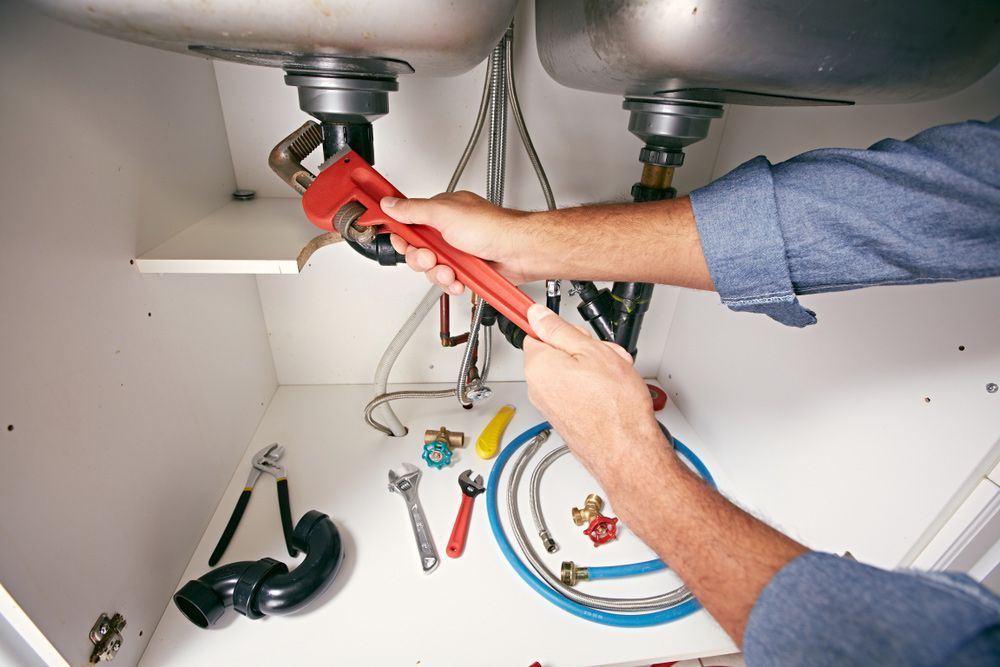How to Prevent Clogged Drains in Your Home
How to Prevent Clogged Drains in Your Home
Wednesday, April 15, 2020 3:52 PM
Clogged drains might seem like a minor nuisance, but they’re often a sign of deeper plumbing issues. Left unchecked, even small blockages can escalate into messy and costly repairs. For homeowners and renters alike, staying on top of everyday drain maintenance isn’t just good practice—it’s essential. From the bathroom to the kitchen, drains take a lot of abuse. The good news is a few simple habits can go a long way towards preventing those annoying—and sometimes smelly—backups. Let’s explore some practical, easy-to-implement ways to prevent clogged drains and keep your plumbing in top condition.
Understand What Causes Blocked Drains Before It’s Too Late
Prevention begins with awareness. Most clogged drains are the result of everyday materials that get washed or flushed down without a second thought. Knowing what causes blocked drains helps you avoid the behaviours that lead to them.
Common causes include:
- Hair and soap scum accumulating in bathroom drains
- Grease and cooking oil hardening in kitchen pipes
- Food particles and coffee grounds clogging sinks
- Tree roots in older properties invading outdoor pipes
- Non-biodegradable items like wipes or sanitary products being flushed
By understanding what your drains are up against, you’ll be better equipped to keep them flowing freely.
Keep Grease & Cooking Fat Out of the Kitchen Sink
One of the fastest ways to create a stubborn clog is to pour cooking oil, butter, or fat down the kitchen sink. These substances cool, solidify, and build up over time, constricting your pipes until nothing gets through.
Instead of pouring them down the sink:
- Let fats solidify, then scrape them into the bin.
- Use a sealable jar or tin to collect liquid oils and dispose of them properly.
- Wipe greasy pans with paper towels before rinsing.
- Avoid rinsing with hot water, which only moves the grease further.
Taking these steps now can prevent the need for emergency blocked drain services in the future.
Use Drain Strainers to Catch Debris Early
An inexpensive but effective measure to prevent blockages is installing drain strainers. These mesh or rubber covers sit over the plughole and catch debris before it can enter the pipes.
Drain strainers help by:
- Trapping food scraps in kitchen sinks
- Catching hair and soap particles in bathroom drains
- Preventing toys, cotton buds, or small objects from getting lost down the drain
- Making clean-up easier, as debris can be tipped straight into the bin
They’re a small investment that offers big returns in drain health.
Schedule Regular Drain Flushing with Hot Water
Preventative maintenance is key to avoiding stubborn clogs. One professional strategy that helps preserve pipe function is periodic hot water flushing. This simple but effective practice assists in clearing out residue and build-up before they become serious blockages.
Professional drain flushing helps to:
- Break down grease deposits that accumulate in kitchen plumbing
- Loosen early-stage soap scum and sludge, especially in bathrooms and laundries
- Maintain smoother water flow in frequently used drains
- Minimise unpleasant odours caused by organic matter lingering in pipes
Plumbers can perform this as part of routine servicing, using safe techniques that protect older plumbing while promoting overall system health. It's a smart step in keeping your home free from unnecessary blockages.
Avoid Flushing ‘Flushable’ Wipes & Hygiene Products
Despite what the packaging might say, “flushable” wipes often cause more harm than good. These and other hygiene items don’t break down quickly enough, leading to blockages in home plumbing and wider sewer systems.
Items that should never be flushed include:
- Baby wipes & cleaning wipes(even those marked flushable)
- Sanitary pads & tampons
- Cotton buds & makeup remover pads
- Tissues & paper towels
Always use the bin for anything other than toilet paper—and educate guests and family members to do the same.
Watch What Goes in Your Shower & Laundry Drains
Bathroom and laundry drains are often overlooked when it comes to maintenance. However, they’re just as vulnerable to build-up from hair, lint, and detergent residues.
You can reduce the risk of clogs by:
- Using hair catchers in showers and bath drains
- Brushing hair before showering to reduce the amount that goes down the drain
- Installing lint traps on washing machine outlets
- Using laundry detergents sparingly, as some powders can clump and clog
Maintaining these areas makes a noticeable difference in preventing backups and slow drainage.
Educate Everyone in the Household About Drain Safety
It only takes one mistake to block a drain—and it’s often avoidable with the right information. Everyone in the household, from children to guests, should know what should and shouldn’t go down the drain.
Practical ways to get everyone on board:
- Put signs near toilets and sinks in shared homes or rentals
- Show kids how to dispose of tissues and wipes correctly
- Keep a small bin in the bathroom for hygiene products
- Create a drain-cleaning schedule if multiple people share the home
Collective awareness helps build responsible habits that protect your plumbing system long-term.
Know When It’s Time to Call a Plumber
Even with the best habits, some clogs are unavoidable—especially if your home has older plumbing. Recognising when DIY just won’t cut is key to avoiding more serious issues.
Signs you should call a professional include:
- Water backing up in multiple drains
- Gurgling sounds or unpleasant smells
- Slow drainage that doesn’t improve with hot water
- Frequent blockages, even after clearing
- Overflowing drains outside, which could indicate a sewer issue
A qualified plumber can use tools like CCTV inspections and jet blasting to clear tough clogs and check for hidden damage. Acting early can save you from more invasive repairs down the track.
Need Help with Blocked Drains in Townsville?
At Northern Plumbing, we understand how frustrating and disruptive a blocked drain can be. Our expert team provides reliable solutions for clogged drains in Townsville—backed by experience, modern tools, and attention to detail. Whether you need an inspection, a quick fix, or preventative advice, we’re ready to help.
Don’t wait for a small blockage to become a big problem. If you're dealing with clogged drains in Townsville, give us a call or get in touch via our contact page to book a service. Let’s keep your home flowing smoothly.






